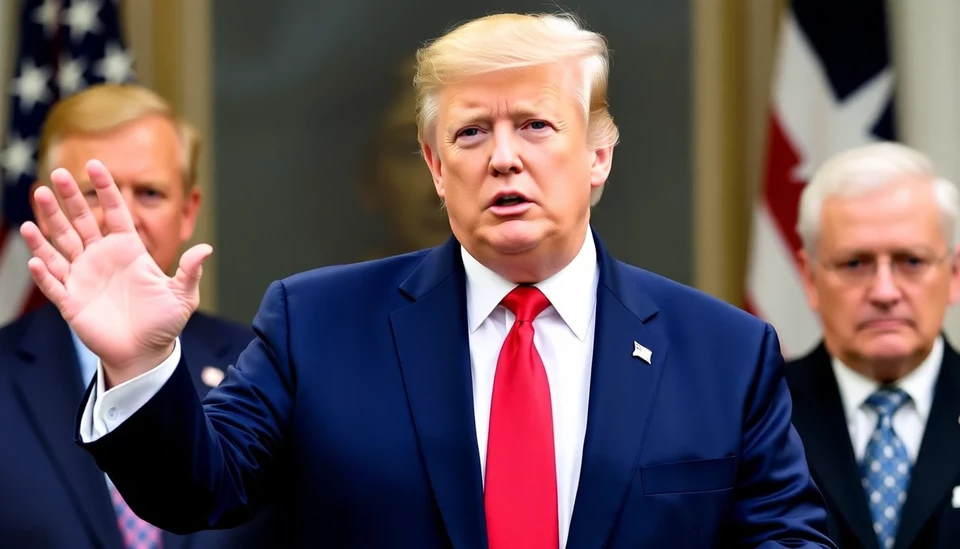
In a dramatic escalation of his trade policies, former President Donald Trump has announced a proposal for new reciprocal tariffs aimed at foreign countries that impose trade barriers on American goods. This initiative, unveiled during a recent speaking engagement, seeks to rectify trade imbalances that Trump argues have been detrimental to U.S. economic interests.
Trump's proposed tariffs would mandate that if a foreign nation levies tariffs on U.S. products, the U.S. would respond in kind, applying equivalent tariffs on that country's exports to the United States. This strategy is designed to incentivize countries to lower their own tariffs, ensuring a more balanced and fair trade environment for American businesses.
During his remarks, Trump emphasized the need for the United States to adopt a more aggressive stance in its trade negotiations, asserting that the current approach has favored foreign economies at the expense of American workers. "We are tired of being taken advantage of," he declared, signaling his administration's intent to prioritize American manufacturing jobs and bolster the domestic economy.
Supporters of Trump's proposals argue that such measures are necessary to protect U.S. industries from unfair competition and devaluation practices used by some countries. Critics, however, caution that these tariffs could spark trade wars that may ultimately hurt American consumers through increased prices and reduced availability of certain goods.
The announcement reflects Trump's ongoing commitment to his "America First" agenda, which resonated with many voters during his presidency. It's also seen as an attempt to consolidate his political base ahead of potential future elections, as he continues to position himself as a champion of American economic interests.
Economic analysts are watching closely to see how this proposal could impact existing trade agreements and the broader global economy. Many are concerned that retaliatory measures could escalate tensions and create uncertainty in international markets, potentially stifling economic recovery following the pandemic.
As Trump prepares to rally support for this policy, businesses and trade experts are urging the administration to carefully consider the implications of such tariffs on global supply chains and the long-term relationship with international trading partners.
The effectiveness of these proposed tariffs will depend significantly on how countries respond and whether they will reconsider their own tariff structures to avoid a tit-for-tat escalation that could result in a complex web of tariffs and regulations.
With the landscape of global trade ever-evolving, Trump's strategy signals a return to a more protectionist approach reminiscent of his earlier days in office. It raises critical questions about the future of U.S. trade, international relations, and the potential for fostering a more equitable global trading system.
#TrumpTariffs #TradePolicy #EconomicStruggle #AmericaFirst #GlobalTrade #TariffDebates
Author: Laura Mitchell




